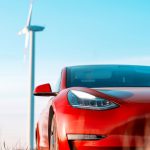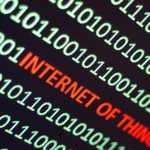A satirical citation left on a Tesla Cybertruck at Stanford Shopping Center in California has stirred debate on social media platforms, after the note criticized the vehicle owner for driving what it called a “fascist car.” The Cybertruck driver discovered the fake citation beneath a windshield wiper, igniting conversations about the effectiveness and tone of protests targeting Tesla and its CEO, Elon Musk. This incident spotlights the tensions between EV supporters and critics, as drivers become unlikely figures at the intersection of technology, climate issues, and culture. Humor and derision appeared in the protest, but not without drawing widespread attention and mixed reactions.
Past reports involving Tesla vehicles have often focused on physical acts of vandalism and heated protests, including high-profile cases where Teslas and showrooms were directly targeted. In most previous cases, actions included graffiti or attempts to damage property, contrasting with the more performative nature of this satirical ticket. Public response has at times criticized both these overt protest measures and the motivations behind them. The shift here towards a sarcastic approach, rather than physical damage, suggests changing tactics among those expressing opposition to the company or its leadership.
How Did the Incident Unfold?
Tesla’s staff program manager, Ryan Torres, shared the image of the fake citation on X (formerly Twitter), where the paper accused the driver of supporting a controversial figure and urged alternatives such as using public transportation. The note also referenced Elon Musk in a highly negative light. The response online ranged from ridicule to attempts to analyze the intention behind the action. Sharing the incident, Torres implied skepticism at the protest method, remarking on the perceived lack of substance in the gesture.
“Pro tip to the person and group doing this: If you’re going to protest, maybe do a little research,”
he stated, highlighting the disconnect between the method of protest and the subject matter.
What Perspectives Are Emerging?
Supporters argue that Tesla has contributed to the U.S. workforce, with over 140,000 Americans employed by the company. Additionally, Tesla’s efforts in electric vehicle manufacturing are often credited with modernizing transportation and supporting clean energy initiatives. Despite this, the incident underlines persistent dissatisfaction among some individuals with Musk’s public persona and business tactics. The rapid escalation of responses on X demonstrates the polarizing effect that both Tesla and Musk have in discussions about technology and environmental policy. Torres pointed out that
“Tesla employs 140k+ Americans & SpaceX dominates space tech,”
referencing the broader societal impact of the companies led by Musk.
Can Performative Protests Gain Traction?
Reactions to the incident suggest that performative protests, such as fake citations, are unlikely to foster informed dialogue. Commentary on social networks characterized the action as awkward, rather than impactful, and some compared it to more extreme cases of property damage experienced by Tesla earlier this year. Unlike firebomb attacks or vandalism, which carry legal consequences and potential harm, gestures like this citation mainly invite scrutiny for their appropriateness and effectiveness.
The episode reflects a larger trend of symbolic acts directed at figures and brands involved in high-profile debates about technology, environmental impact, and political identity. As the conversation continues, observers may question whether such acts can shift public opinion or simply underscore divisions. For those interested in electric vehicles or activism, the event highlights the complexities of protest in the digital era, where perceptions can be shaped as much by the mode of demonstration as by its message. To better understand and express dissent, individuals might benefit from balancing criticism with awareness of the broader context surrounding companies like Tesla, including their economic and environmental contributions.










